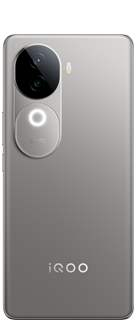Five Inventions That Changed the World
Five Inventions That Changed the World
Throughout human history, innovation has played a pivotal role in shaping our world and improving our lives. Inventions have not only transformed the way we live but have also propelled humanity into the future. Among these groundbreaking inventions, the light bulb, electricity, telephone, printing press and television stand out as monumental achievements that have forever altered the course of human civilization. In this article, we will explore these five inventions and their profound impact on the world.
The Light Bulb

The invention of the light bulb is often attributed to Thomas Edison, who patented the practical incandescent light bulb in 1879. This invention revolutionized daily life by bringing light to the darkness of the night. Before the light bulb, people relied on candles, oil lamps, and gas lamps, which were inefficient and often hazardous. The light bulb provided a safer, more reliable, and longer-lasting source of illumination, transforming homes, workplaces, and cities.
The widespread adoption of electric lighting not only improved productivity but also extended the hours available for work and leisure, accelerating economic growth and changing our sleep patterns. The light bulb laid the foundation for countless technological advancements and remains a symbol of human ingenuity.
Electricity

Electricity, harnessed and distributed on a large scale, is another invention that changed the world. It powers our homes, industries, and technological devices, enabling us to live in a modern, interconnected world. While Edison's work on the light bulb was significant, it was the work of many inventors, including Nikola Tesla and George Westinghouse, that led to the development of the alternating current (AC) electrical system, which allowed for long-distance power transmission.
The electrification of cities and rural areas transformed society in profound ways. Electric motors revolutionized manufacturing, transportation, and agriculture. The availability of electrical energy paved the way for the development of household appliances, from refrigerators to washing machines, making domestic life more convenient. The modern world would be unimaginable without electricity, which has become an essential part of our daily existence.
The Telephone

In 1876, Alexander Graham Bell patented the telephone, an invention that revolutionized communication. Before the telephone, long-distance communication was limited to written correspondence, which could take weeks or months to reach its destination. With the telephone, people could communicate in real-time over vast distances, connecting families, businesses, and nations.
The telephone's impact on business and commerce was profound. It facilitated quicker decision-making, improved customer service, and fostered the growth of global trade. It also played a crucial role in emergency services, healthcare, and countless other fields. Today, the smartphone, a descendant of Bell's invention, has become an indispensable part of our lives, demonstrating the enduring significance of the telephone.
The Printing Press

In the 15th century, Johannes Gutenberg introduced the world to the printing press, a mechanical marvel that revolutionized the dissemination of information. Before the printing press, books were painstakingly copied by hand, making them rare and expensive commodities. Gutenberg's invention, with its movable type, allowed for the mass production of books, making knowledge more accessible to the masses.
The printing press played a pivotal role in the spread of ideas, facilitating the Renaissance, the Reformation, and the Enlightenment. It laid the foundation for modern education, journalism, and the exchange of ideas, ultimately democratizing knowledge and igniting an era of intellectual and cultural blossoming.
Television

The advent of television in the early 20th century brought visual storytelling and entertainment into people's homes, changing how we receive information and consume media. Television broadcasts brought news, sports, and entertainment directly to the living room, allowing people to witness historical events, cultural phenomena, and global news from the comfort of their homes.
Television not only shaped popular culture but also influenced political discourse and social behavior. It has been a powerful tool for education, advertising, and propaganda. The evolution of television technology, from black-and-white to color and now high-definition and digital formats, continues to captivate and inform audiences worldwide.
These five inventions—the light bulb, electricity, telephone,the printing press and television—have left an indelible mark on human history. They have transformed the way we live, work, communicate, and entertain ourselves. Beyond their immediate applications, these inventions have paved the way for countless other technological advancements, shaping the world we live in today. They serve as a testament to human innovation, creativity, and our ability to change the course of history through ingenuity and determination. As we continue to advance technologically, it's worth remembering the profound impact these inventions have had on our world.
Nitin Panwar
Moderator
Please sign in
Login and share

























